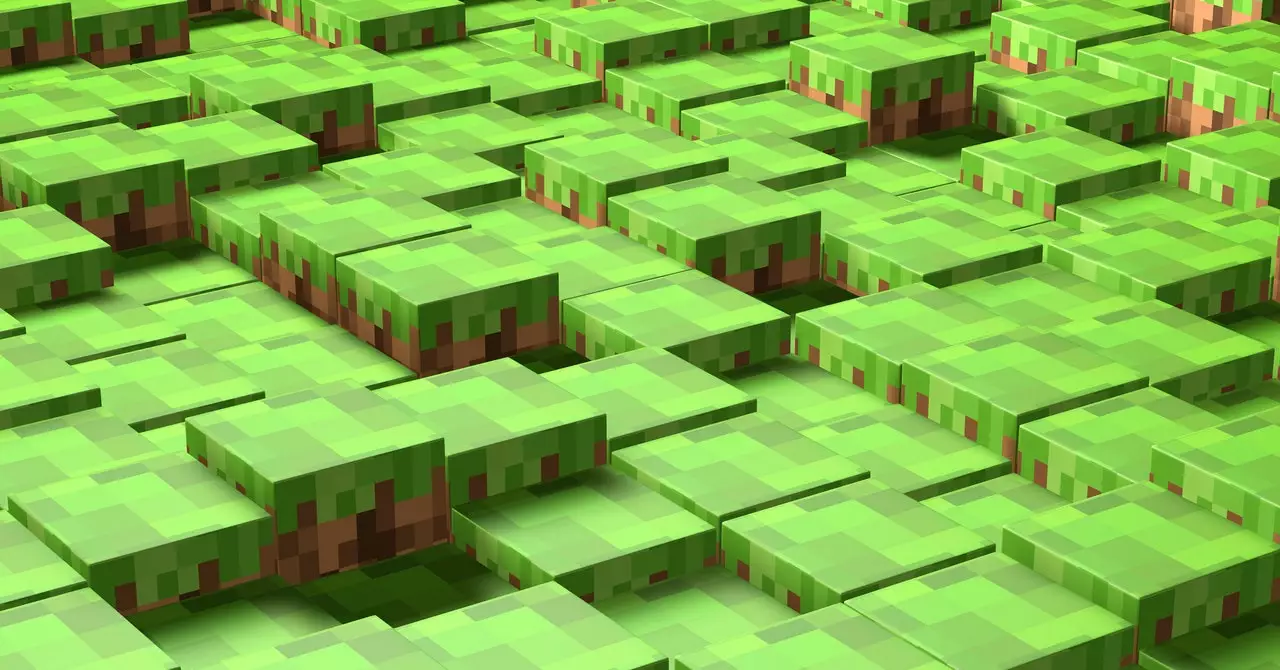Since its launch over a decade ago, *Minecraft* has captivated millions with its charming blend of creativity and open-world exploration. However, a new contender, *Oasis*, has emerged that promises to offer a rather unusual twist on this beloved classic. Developed by the Israeli AI startup Decart in partnership with Etched, a firm specializing in custom silicon design, *Oasis* employs a groundbreaking approach where an artificial intelligence (AI) model generates the game’s visuals. This article delves into the unique features of *Oasis*, the technology behind it, and the implications for the future of gaming.
At the heart of *Oasis* lies a transformer AI model, akin to large language models, but specifically trained on extensive gameplay footage and simulations of *Minecraft*. Rather than relying on pre-coded rules and a standard game engine, this innovative game uses AI to intuitively create each frame, responding dynamically to player interactions. The result is a beautifully bizarre environment that players can explore, marked by uncanny landscapes and whimsical designs. This futuristic generation method opens doors to an augmented gaming experience where players are not just observers but co-creators of an ever-evolving world.
Despite the initial intrigue surrounding *Oasis*, it is essential to recognize that its gameplay experience can often feel surreal and disorienting. Each frame morphs based on the AI’s interpretations and projections, creating a volatile environment that contrasts sharply with the stable mechanics familiar to many *Minecraft* players. Players may find themselves in a world that changes distinctly with each glance, with peculiar artifacts such as distorted animals and paths leading to nowhere. This variability can either enchant or frustrate users, raising questions about the long-term viability of this gameplay style.
One of the most striking aspects of *Oasis* is its ability to allow users to upload their images, which the AI then transforms into blocky landscapes. This feature has ignited creativity and interest among the gaming community, giving players the opportunity to see familiar images reimagined in this unique block-based aesthetic. For instance, when one player uploaded a photograph of their cat, the AI conjured a dreamy landscape inspired by the image, albeit without rendering the cat as a character within the game. This blending of personal creativity with AI-generated content exemplifies a new frontier in gaming, where players can explore the unexpected.
Oasis has quickly gained traction online, attracting attention as players experiment with its AI capabilities to generate unique landscapes and environments. This viral nature arises not only from the novelty of the technology but also from the inherent desire of players to push the boundaries of what is possible in interactive worlds. Some players even report experiencing moments reminiscent of *Minecraft*’s darker realms, and the act of seeking out such experiences adds an element of thrill to the gameplay.
Despite its captivating approach, analysts have raised concerns regarding the long-term prospects of *Oasis* as a mainstream title. Experts like Julian Togelius, a computer science professor at NYU, have highlighted the inconsistency intrinsic to generative AI in its current state. While the potential remains for AI to control in-game characters and generate elaborate scenes, the technology is still in its infancy. The unpredictability and uncontrollability of AI may inhibit the development of truly engaging gameplay experiences, forcing developers to tread carefully.
Moreover, game designer Frank Lantz suggests that while *Oasis* currently straddles the uncomfortable space of the “uncanny valley,” there lies potential for the right creativity to mold this concept into a genuinely enjoyable game. The allure of surreal artistry and mechanical innovation may yet inspire a designer to refine the user experience, converting abstract challenges into relatable gameplay that resonates with players.
The emergence of *Oasis* as a distinctive alternative to *Minecraft* not only showcases the power of AI-generated content but also challenges traditional notions of game design. With evolving technology that facilitates spontaneous creativity, the landscape of interactive entertainment is ripe for exploration. While *Oasis* may not be the definitive answer for gaming’s future just yet, its intriguing blend of unpredictability, user engagement, and innovative use of AI opens a dialogue about what gaming might become in the years to come. As we continue down this path, it’s evident that outré worlds like those created in *Oasis* hint at endless possibilities waiting to be decoded.


Leave a Reply